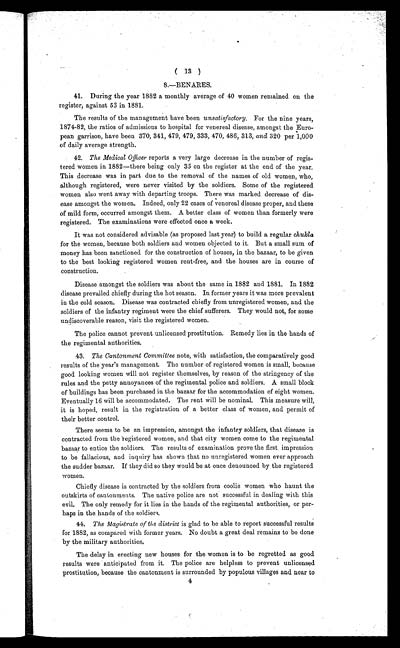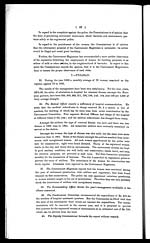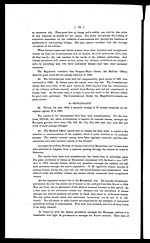Medicine - Institutions > Lock hospitals > Annual report on the working of the lock hospitals in the North-Western Provinces and Oudh > 1882
(323) Page 13
Download files
Individual page:
Thumbnail gallery: Grid view | List view

( 13 )
8.—BENARES.
41. During the year 1882 a monthly average of 40 women remained on the
register, against 53 in 1881.
The results of the management have been unsatisfactory. For the nine years,
1874-82, the ratios of admissions to hospital for venereal disease, amongst the Euro-
pean garrison, have been 370, 341, 479, 479, 333, 470, 486, 313, and 320 per 1,000
of daily average strength,
42. The Medical Officer reports a very large decrease in the number of regis-
tered women in 1882—there being only 35 on the register at the end of the year.
This decrease was in part due to the removal of the names of old women, who,
although registered, were never visited by the soldiers. Some of the registered
women also went away with departing troops. There was marked decrease of dis-
ease amongst the women. Indeed, only 22 cases of venereal disease proper, and these
of mild form, occurred amongst them. A better class of women than formerly were
registered. The examinations were effected once a week.
It was not considered advisable (as proposed last year) to build a regular chukla
for the women, because both soldiers and women objected to it. But a small sum of
money has been sanctioned for the construction of houses, in the bazaar, to be given
to the best looking registered women rent-free, and the houses are in course of
construction.
Disease amongst the soldiers was about the same in 1882 and 1881. In 1882
disease prevailed chiefly during the hot season, In former years it was more prevalent
in the cold season. Disease was contracted chiefly from unregistered women, and the
soldiers of the infantry regiment were the chief sufferers. They would not, for some
undiscoverable reason, visit the registered women.
The police cannot prevent unlicensed prostitution. Remedy lies in the hands of
the regimental authorities.
43. The Cantonment Committee note, with satisfaction, the comparatively
good results of the year's management. The number of registered women is small, because
good looking women will not register themselves, by reason of the stringency of the
rules and the petty annoyances of the regimental police and soldiers. A small block
of buildings has been purchased in the bazaar for the accommodation of eight women.
Eventually 16 will be accommodated. The rent Will be nominal. This measure will,
it is hoped, result in the registration of a better class of women, and permit of
their better control.
There seems to be an impression, amongst the infantry soldiers, that disease is
contracted from the registered women, and that city women come to the regimental
bazaar to entice the soldiers. The results of examination prove the first impression
to be fallacious, and inquiry has shown that no unregistered women ever approach
the sudder bazaar. If they did so they would be at once denounced by the registered
women.
Chiefly disease is contracted by the soldiers from coolie women who haunt the
outskirts of cantonments. The native police are not successful in dealing with this
evil. The only remedy for it lies in the hands of the regimental authorities, or per-
haps in the hands of the soldier.
44. The Magistrate of the district is glad to be able to report successful results
for 1882, as compared with former years. No doubt a great deal remains to be done
by the military authorities,
The delay in erecting new houses for the women is to be regretted as good
results were anticipated from it. The police are helpless to prevent unlicensed
prostitution, because the cantonment is surrounded by populous villages and near to
4
Set display mode to: Large image | Zoom image | Transcription
Images and transcriptions on this page, including medium image downloads, may be used under the Creative Commons Attribution 4.0 International Licence unless otherwise stated. ![]()
| India Papers > Medicine - Institutions > Lock hospitals > Annual report on the working of the lock hospitals in the North-Western Provinces and Oudh > 1882 > (323) Page 13 |
|---|
| Permanent URL | https://digital.nls.uk/75111840 |
|---|




